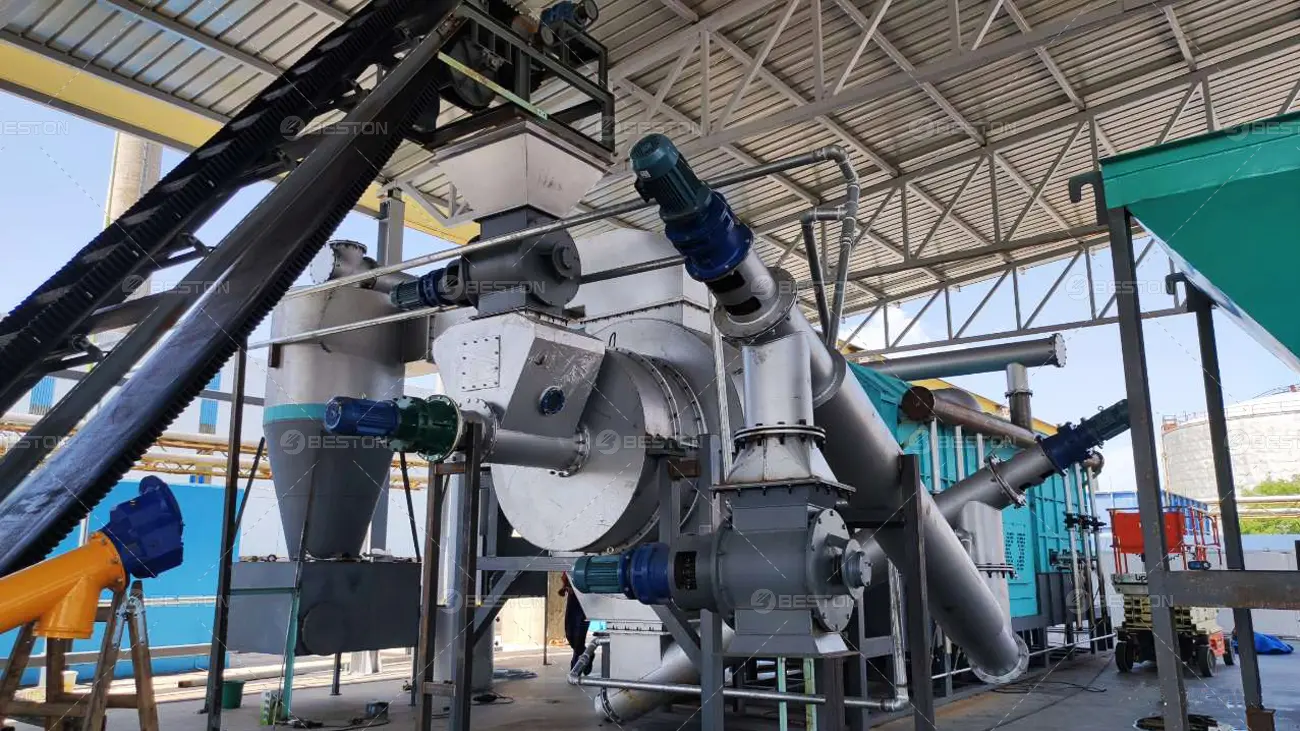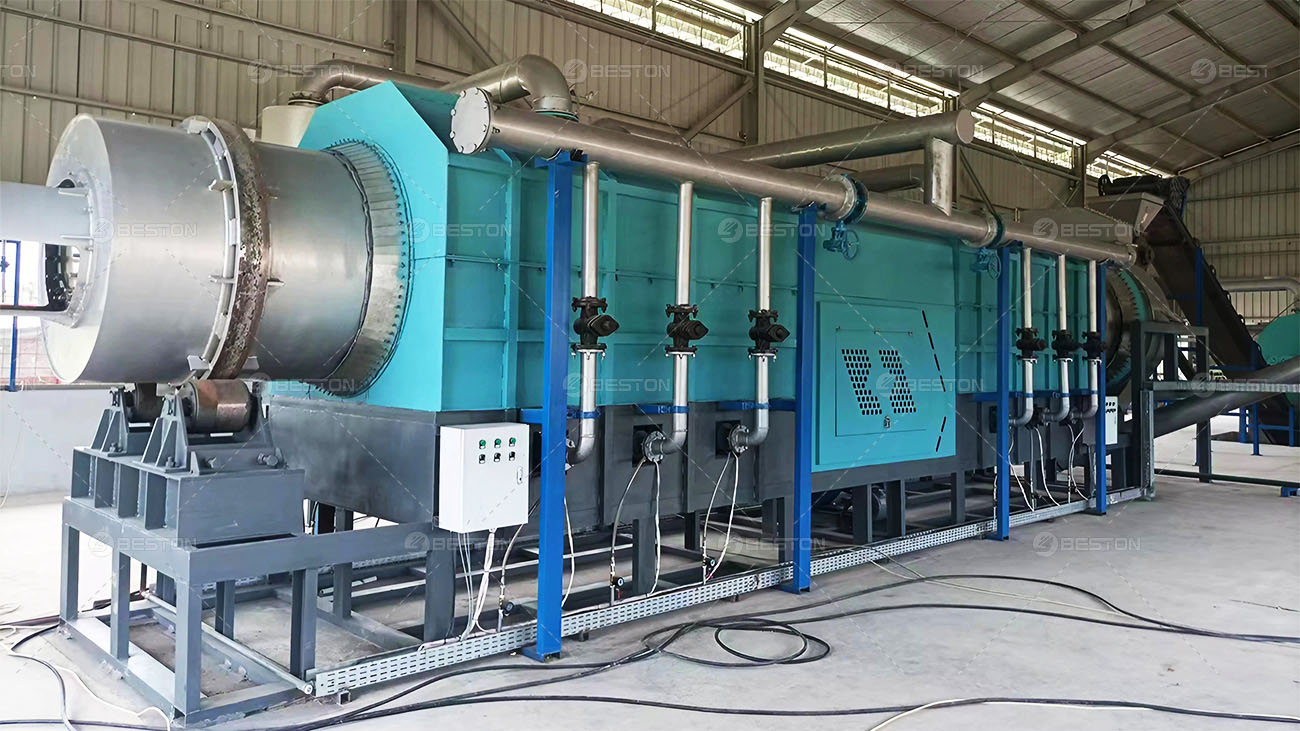In the production of charcoal, the price of machinery plays a critical role in determining both project feasibility and overall profitability. While a wide range of charcoal machines is available, varying in complexity, size, and functionality, understanding the factors that influence charcoal machine price is essential for making an informed purchasing decision. This article examines five primary factors impacting the price of charcoal machines.

1. Machine Capacity and Throughput
Machine capacity—measured by the quantity of raw materials a machine can process per hour or day—significantly impacts the charcoal making machine price. Higher-capacity machines are engineered to handle larger quantities of materials, requiring sturdier construction, advanced controls, and more robust components to ensure continuous and efficient operation. Consequently, machines with higher throughput rates often carry a premium price.
A larger machine capacity allows operators to produce more charcoal in a shorter period, which can be essential for meeting market demands or scaling production. However, these high-capacity machines also necessitate higher energy consumption, specialized training, and may require more substantial floor space. Small-to-medium capacity machines can be cost-effective for businesses with limited production requirements, while larger machines are more economical for high-volume operations that require rapid processing rates.
2. Technological Features and Automation Level
Modern biochar pyrolysis machine incorporate varying degrees of automation, which can dramatically affect their price. Automated features, such as precise temperature controls, real-time monitoring, and automated feeding and discharge systems, reduce labor requirements and ensure a more consistent end product. High-tech machines with features like programmable logic controllers (PLC) and advanced sensors not only streamline operations but also enhance safety and production quality.
Machines with higher automation levels minimize manual intervention, reducing labor costs in the long run. However, these advanced features increase initial investment costs. For enterprises looking to optimize operational efficiency and reduce reliance on manual processes, the higher initial cost may be justified. In contrast, small-scale operators or budget-conscious buyers might find semi-automated or manually controlled machines more suitable, as these offer basic functionality at a lower price point.
3. Material Composition and Build Quality
The materials and construction quality of charcoal machines play a pivotal role in their pricing. Machines made from high-grade, corrosion-resistant materials, such as stainless steel or reinforced steel alloys, are often more expensive due to the added durability and longevity they provide. These materials are essential in withstanding the high temperatures and abrasive conditions inherent in charcoal production. Machines constructed from lower-grade materials, on the other hand, may have a shorter lifespan and require more frequent maintenance, although they generally come with a lower price tag.
A high-quality build can lead to longer operational life, fewer breakdowns, and lower maintenance costs over time, making it a worthwhile investment for producers with long-term plans. When evaluating biomass carbonization plant price, it’s essential to consider not only the initial cost but also the machine’s expected longevity and maintenance needs. Buyers should balance upfront savings with potential long-term expenses, as cheaper machines might incur higher operational costs over their lifespan.
4. Type of Raw Material Compatibility
Charcoal machines vary in their ability to process different raw materials, from wood and coconut shells to rice husks and sawdust. Machines engineered for specific materials may incorporate specialized components, such as biomass feeders or shredders, which add to their overall cost. Versatile machines capable of processing a wide range of materials tend to command higher prices because they are designed to accommodate varied biomass characteristics without compromising efficiency or product quality.
Selecting a machine suited to a specific raw material can help optimize production efficiency and reduce waste. However, if a producer needs to process multiple types of biomass, investing in a versatile machine is often more economical in the long term. Versatility in raw material compatibility can lead to broader product offerings and the ability to pivot to different sources of biomass as market conditions change.
5. After-Sales Support and Warranty
A crucial yet often overlooked factor affecting charcoal machine price is the level of after-sales support and warranty provided by the manufacturer. Machines that come with extensive warranties and comprehensive after-sales services, such as installation support, training, regular maintenance, and technical assistance, typically carry a higher price. These services ensure that the machine remains operational for as long as possible and that any issues are swiftly resolved. If you want to find a reliable manufacturer, please consult Beston Group China.
A strong after-sales support package can provide peace of mind, reduce unexpected downtime, and enhance the machine’s resale value. When comparing charcoal machine prices, evaluating the quality and extent of the after-sales service can be as important as the technical specifications of the machine itself. Premium manufacturers often offer long-term warranties and round-the-clock customer support, which justifies their higher price points.
Conclusion
Understanding the factors that influence charcoal machine price allows potential buyers to make informed decisions tailored to their production needs, budget, and long-term goals. Machine capacity, technological features, material composition, raw material compatibility, and after-sales support all play integral roles in shaping the overall price. By weighing these factors carefully, producers can find the right balance between cost and performance, maximizing their investment in charcoal production machinery.